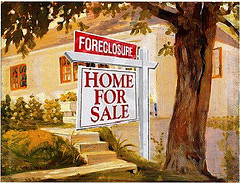 Mortgage Forgiveness Debt Relief Act
Mortgage Forgiveness Debt Relief Act
In the past, homeowners using short sales or deeds in lieu of foreclosure were required to pay tax on the amount of their forgiven debt. However, the Mortgage Forgiveness Debt Relief Act of 2007 (H.R. 3648) changes this for certain loans. This Act, which has been extended through 2012, allows taxpayers to exclude income from the discharge of debt on their principal residence.
Under federal law, a creditor is required to file a Form 1099-C whenever it forgives or cancels a loan balance greater than $600. This may create a tax liability for the debtor because the canceled debt is considered “income” for tax purposes.
The Mortgage Forgiveness Debt Relief Act excludes the cancellation of the complete debt up to $2 million. According to the IRS, the exclusion does not apply if the discharge is due to services performed for the lender or any other reason not directly related to a decline in the home’s value or the taxpayer’s financial condition.
The new law provides tax relief if your deficiency stems from the sale of your primary residence, or the home that you actually live in. Vacation homes, for example, do not qualify. Here is an overview of the rules:
- Loans for your primary residence. If the loan was secured by your primary residence and was used to buy or improve that house, you may exclude up to $2 million in forgiven debt. This means you don’t have to pay tax on the deficiency.
- Loans on other real estate. If you default on a mortgage that’s secured by property that isn’t your primary residence (for example, a loan on your vacation home), then you’ll owe tax on any deficiency.
- Loans secured by but not used to improve primary residence. If you take out a loan, secured by your primary residence, but use it to take a vacation or send your child to college, you will owe tax on any deficiency.
Insolvency exception to tax liability
If you don’t qualify for an exception under the Mortgage Forgiveness Debt Relief Act, you might still qualify for tax relief. If you can prove you were “legally insolvent” at the time of the short sale, deed in lieu, or foreclosure, you won’t be liable for paying tax on the deficiency.
Legal insolvency occurs when your total debts are greater than the value of your total assets (your assets are the equity in your real estate and personal property). To use the insolvency exclusion, you’ll have to prove to the satisfaction of the IRS that your debts exceeded the value of your assets.
photo by: Mike Licht





